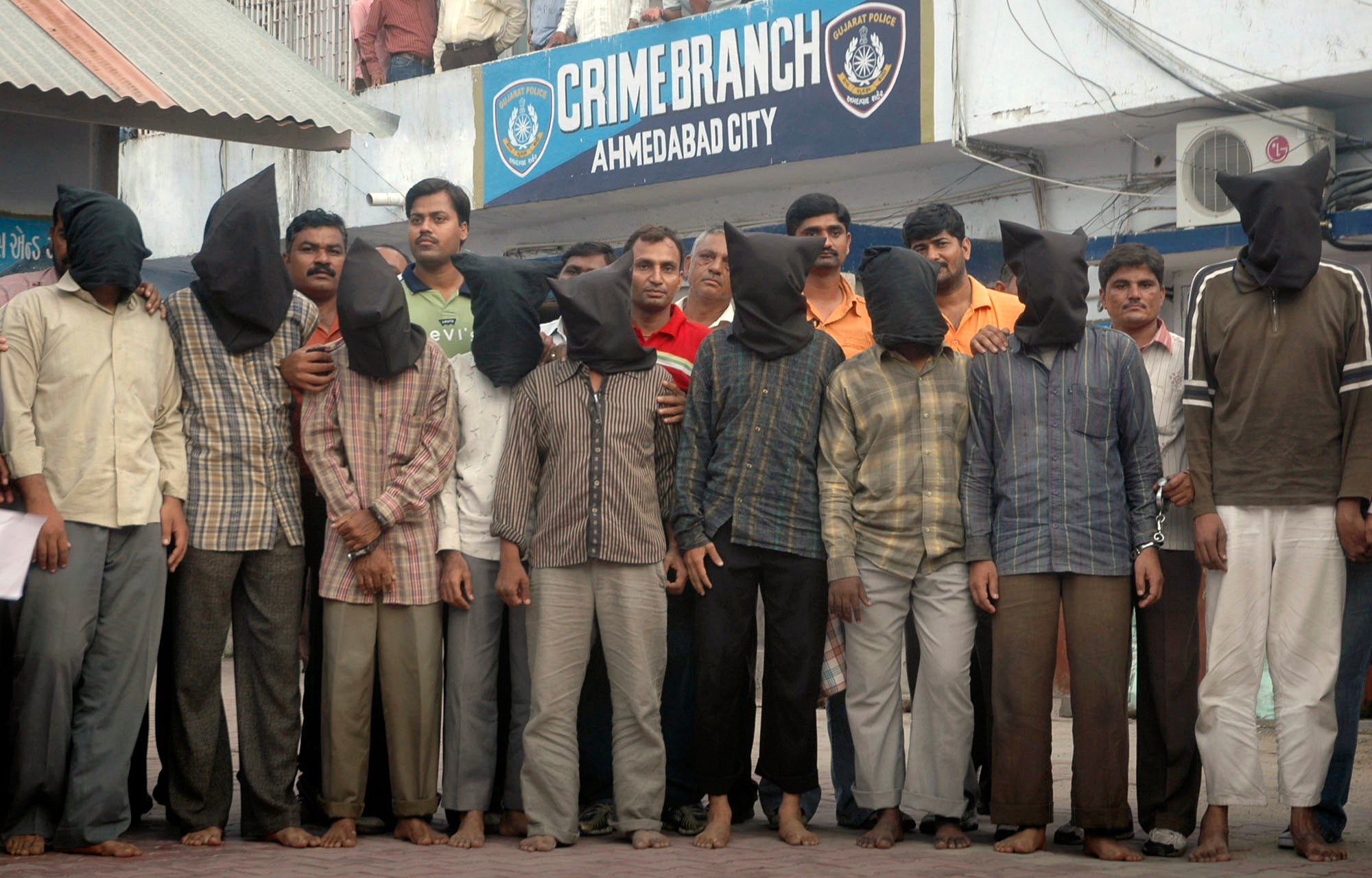Ahmedabad serial blasts: Indian court sentences 38 out of 49 convicts to death in 2008 case
Court also sentences 11 to life imprisonment for explosions that killed 56 people and injured 200

Your support helps us to tell the story
From reproductive rights to climate change to Big Tech, The Independent is on the ground when the story is developing. Whether it's investigating the financials of Elon Musk's pro-Trump PAC or producing our latest documentary, 'The A Word', which shines a light on the American women fighting for reproductive rights, we know how important it is to parse out the facts from the messaging.
At such a critical moment in US history, we need reporters on the ground. Your donation allows us to keep sending journalists to speak to both sides of the story.
The Independent is trusted by Americans across the entire political spectrum. And unlike many other quality news outlets, we choose not to lock Americans out of our reporting and analysis with paywalls. We believe quality journalism should be available to everyone, paid for by those who can afford it.
Your support makes all the difference.A local court in the western state of Gujarat on Friday sentenced 38 convicts to death and 11 to life imprisonment in connection with a series of bomb blasts in Ahmedabad city in 2008 that killed 56 people and injured over 200.
As many as 22 blasts ripped through Ahmedabad on 26 July 2008. Bombs were placed in lunchboxes in hospitals, malls, on buses, cars and bicycles, leading to terror in the state of Gujarat, which has a history of violent clashes between Hindus and Muslims.
Banned terrorist organisation Indian Mujahideen had claimed responsibility at the time for the explosions.
The trial lasted from December 2009 to September 2021, with nine judges hearing the case at different times.
On 8 February, Judge AR Patel of the special court designated to hear this case convicted 49 of the 78 accused in the case on charges including murder, conspiracy to wage war against the state and illegal possession of arms.
Of the remaining accused, one person turned approver, while 28 others were acquitted.
The judge ordered the death penalty after the prosecution argued that this was a “rarest of rare case” where many innocents died.
This is the first time that so many people have been awarded the death sentence in a single case in India. A higher court must confirm the sentence.
Defence lawyer Khalid Shaikh said they would challenge the judgement in a higher court. “We had sought lenient sentences for the convicts as they have already spent more than 13 years in prison,” Mr Shaikh said. “But the court awarded death to the majority of them. We will definitely go for appeal.”
Additional reporting by agencies
Join our commenting forum
Join thought-provoking conversations, follow other Independent readers and see their replies
Comments